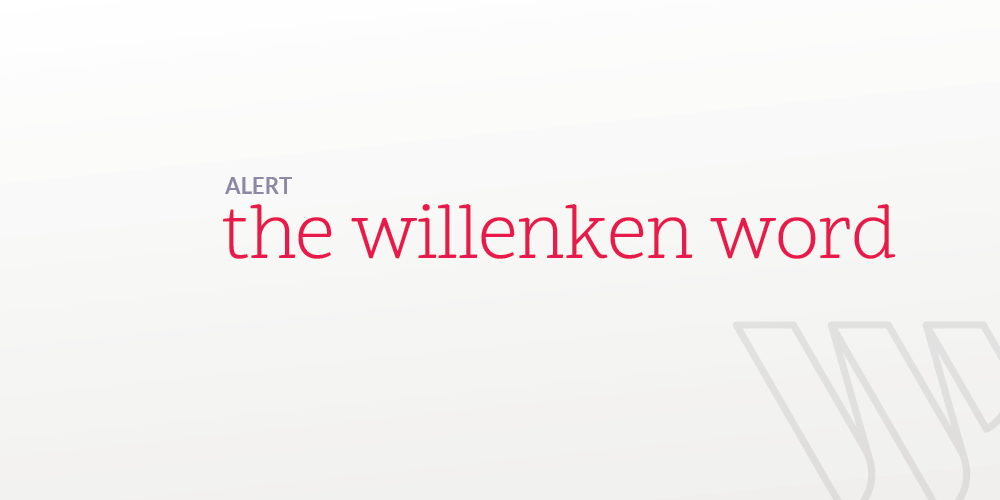The Supreme Court rules Copyright Act requires plaintiff to have registration certificate in hand prior to suit.
On March 4, 2019, in Fourth Estate Public Benefit Corp. v. Wall-Street.com, 586 U.S. ___ (2019), the Supreme Court resolved a circuit split over whether the phrase “registration has been made” in Section 411(a) of the Copyright Act requires a plaintiff to have an approved, registered copyright prior to filing suit or whether, as the Ninth Circuit had previously held, a plaintiff may sue after filing a copyright application and paying the fee — the so-called “application approach.” In a unanimous opinion by Justice Ginsburg, the Supreme Court rejected the application approach. The Court reasoned that the word “registration” must be read consistently with related provisions of Section 411(a), as well as other provisions in the Act allowing preregistration relief in specific situations. So, the phrase “registration has been made” in Section 411(a)’s “specific context” requires an actual, issued “registration” prior to filing suit. While the Supreme Court acknowledged that the registration process can take several months, the Court stated that that delay was for Congress — not the courts — to resolve. The Supreme Court clarified that the Copyright Act protects copyright owners’ rights prior to registration, so copyright owners can retroactively recover damages for infringement that occurs before registration is issued.
practical tips and impact:
It is no longer sufficient in the Ninth Circuit to merely have submitted a copyright application prior to filing suit, and a copyright owner should be aware that they cannot seek injunctive relief before a registration has issued. The registration requirement will also affect the timing of takedown notices and pre-suit remedies under the Digital Millennium Copyright Act (DMCA), because suit must be filed within 10 business days after receipt of a counter-notice from an infringer. So, practically speaking, it will be necessary to have a copyright registration before issuing a takedown notice. To best protect a work, particularly where infringement would cause irreparable harm, copyright holders should promptly register copyrights (including for proprietary fonts, artwork, photos, sound, and computer code for web content) and should not wait to register until they discover the works have been infringed. Copyright registration is fairly straightforward and inexpensive in comparison to the benefits registration provides, but the value of registration may depend on your company’s business needs and overall intellectual property strategy. For important works or in situations where injunctive relief may be paramount, but preregistration relief is not available, copyright holders may choose to pay an additional $800 for an expedited registration.
The Supreme Court reverses Ninth Circuit and holds costs recovery under Copyright Act limited to statutory costs.
Also on March 4, 2019, the Supreme Court issued another unanimous decision in Rimini Street Inc. v. Oracle USA Inc., 586 U.S. ___ (2019), holding that the Copyright Act’s award of “full costs” to a prevailing party on an infringement claim is limited to taxable costs as defined by federal statutes. The Ninth Circuit had affirmed a trial court’s award of $12.8 million in litigation expenses, such as e-Discovery and jury consultants, reasoning that because the Copyright Act allows for the recovery of “full costs,” it is not limited by the definitions in 28 U.S.C. Sections 1821 and 1920. The Supreme Court disagreed and reversed, reasoning that “full costs” is limited by the definition of “costs” — much as “[a] ‘full moon’ means the moon, not Mars.” The Supreme Court rejected Oracle’s argument that the phrase “full costs” was borrowed from the English copyright law, which allowed shifting of all expenses of litigation. The Supreme Court pointed out that Oracle could not identify any other copyright decision — of more than 800 cases decided since the early 1800s — that allowed for the recovery of any costs other than those enumerated by Sections 1821 and 1920.
practical tips & impact:
The Supreme Court’s decision creates more certainty around the potential scope of “costs” liability. Copyright holders may moderate their expectations regarding the recovery of litigation expenses, which could have an impact on settlement negotiations, although it is unlikely to have much impact on the costs of litigation.



